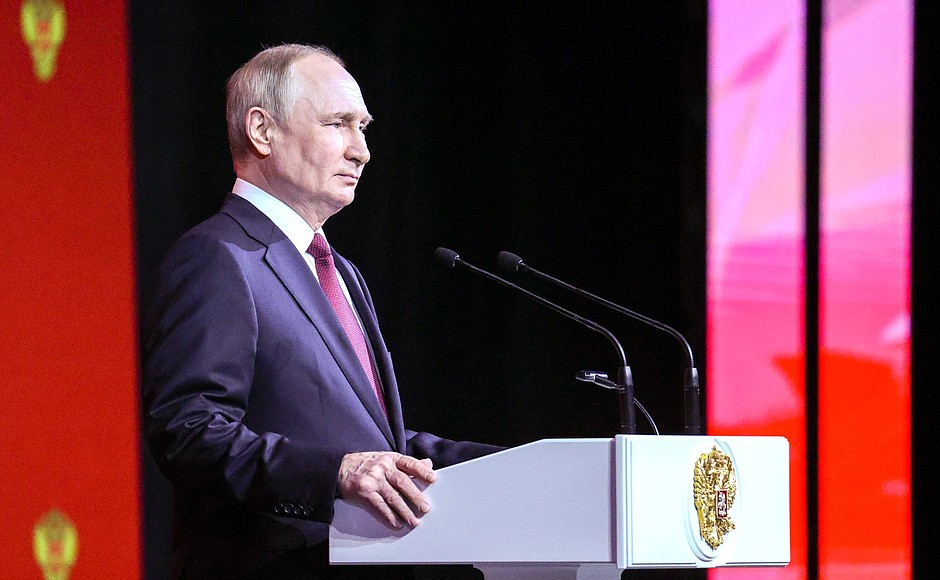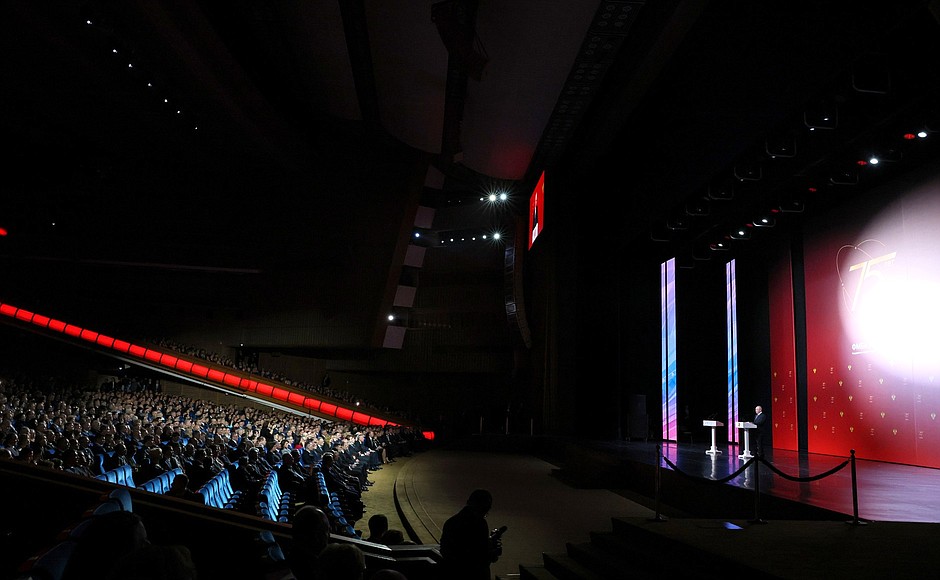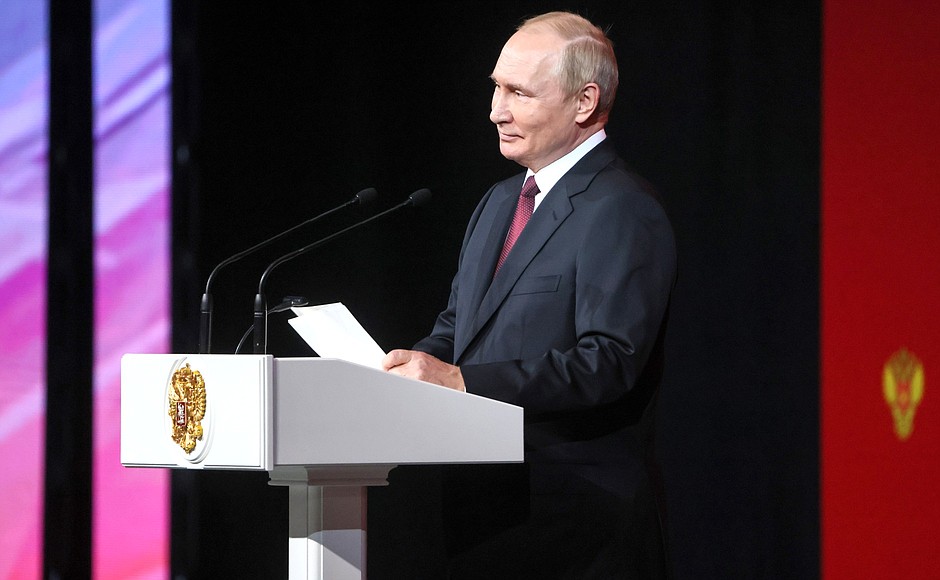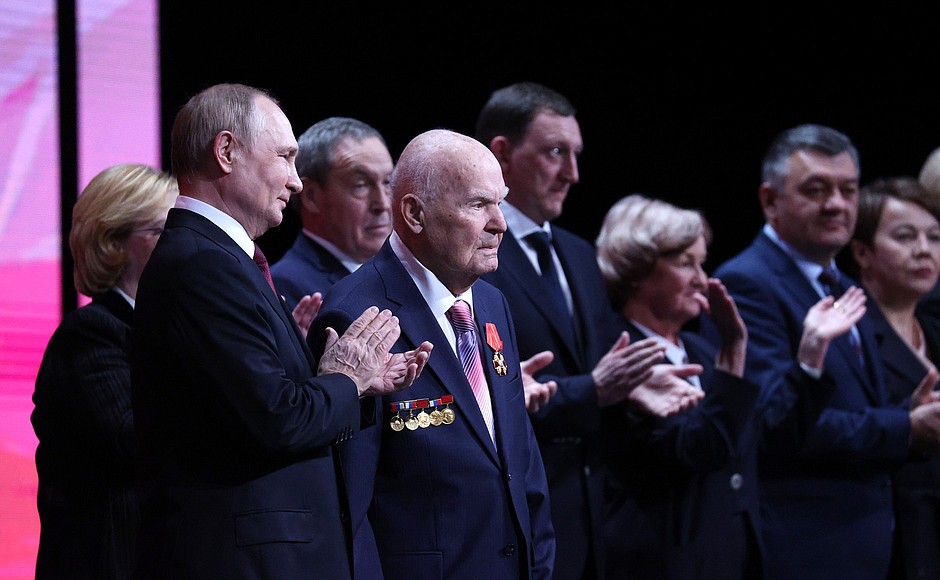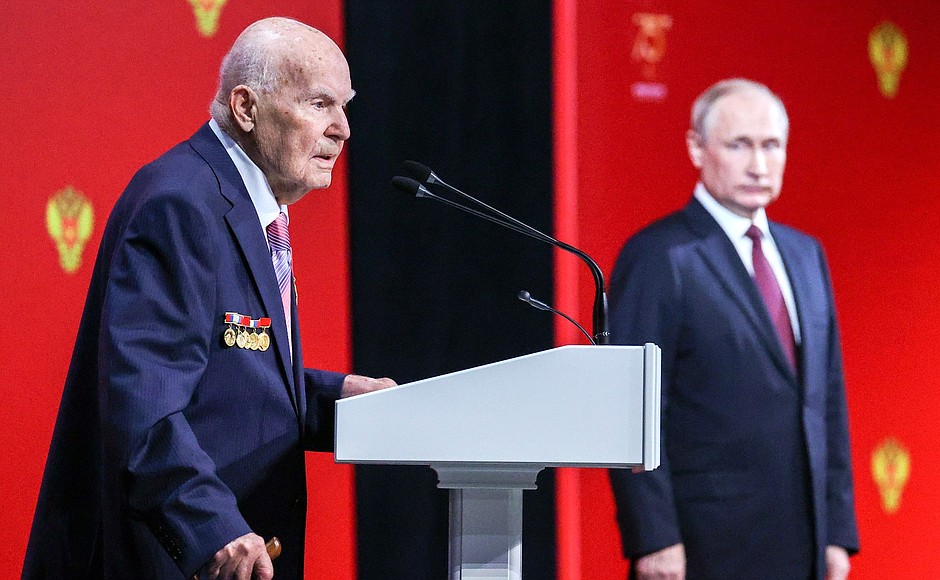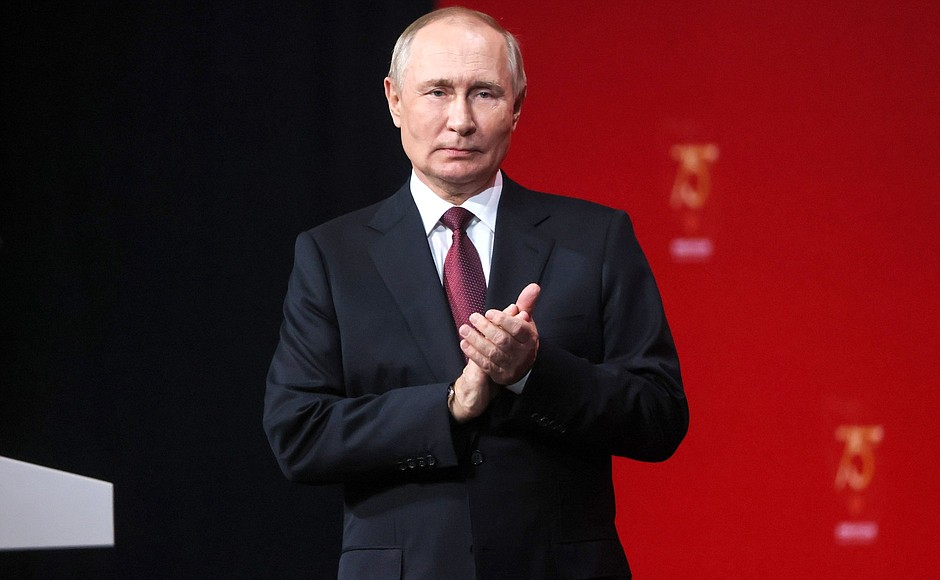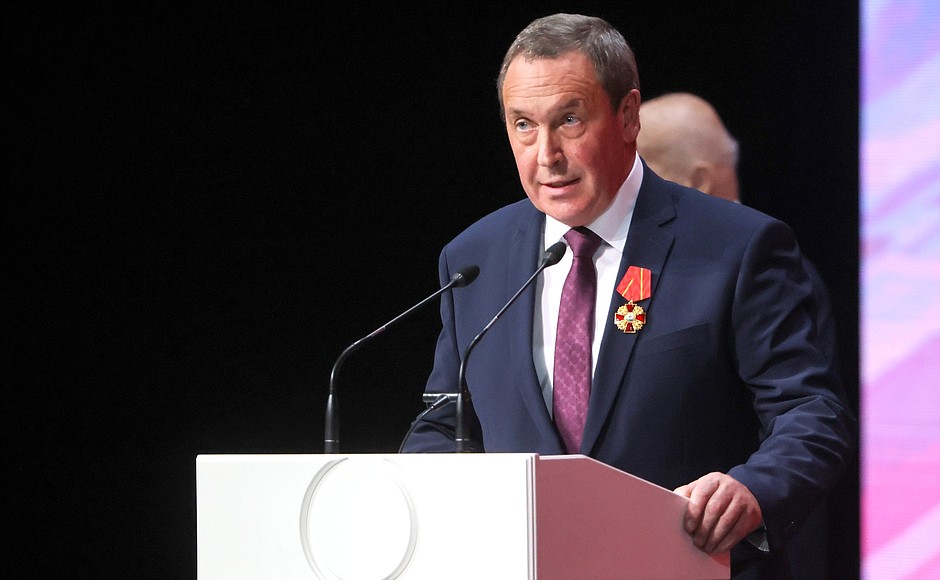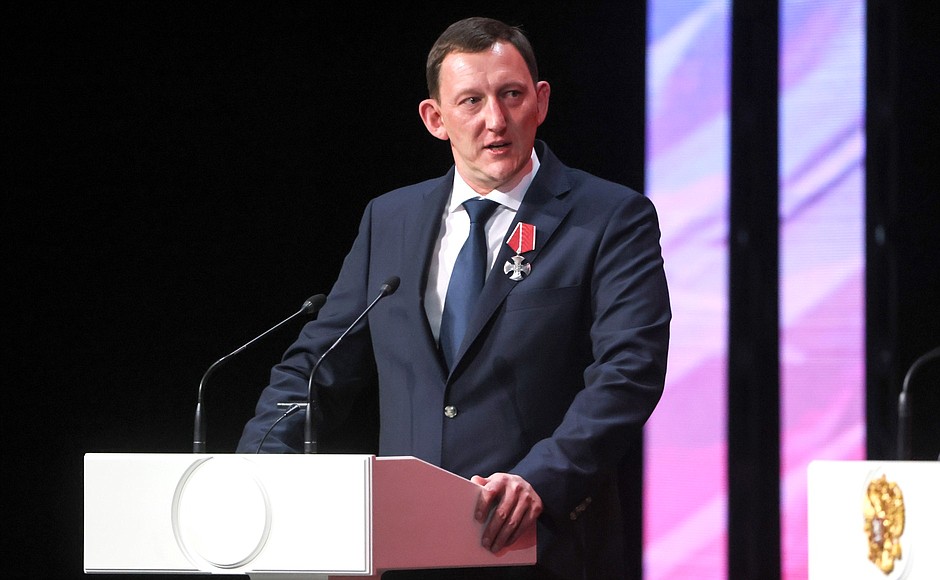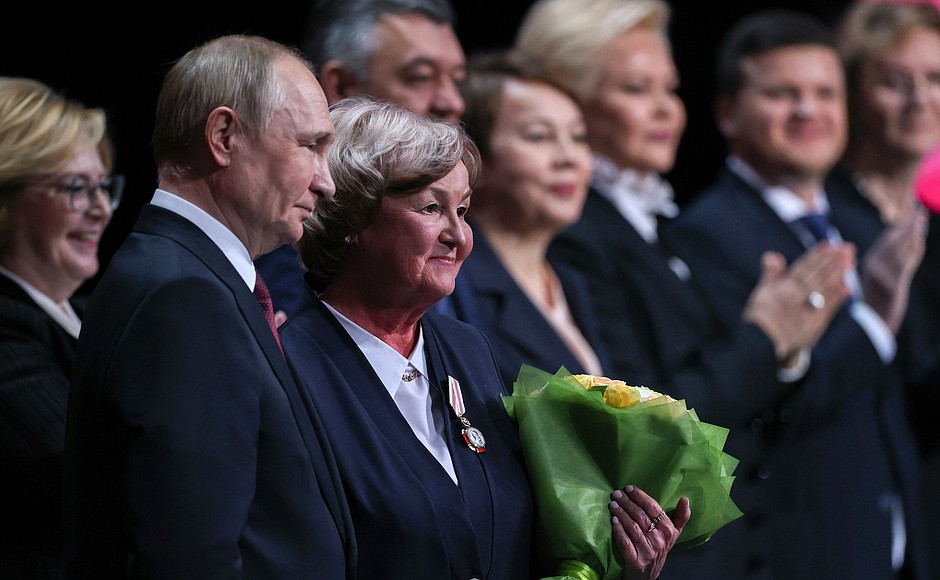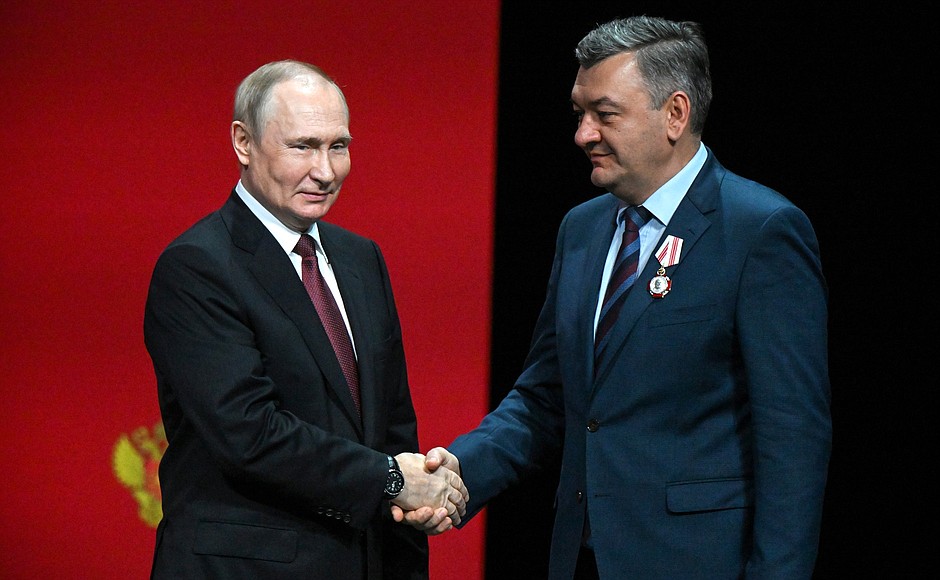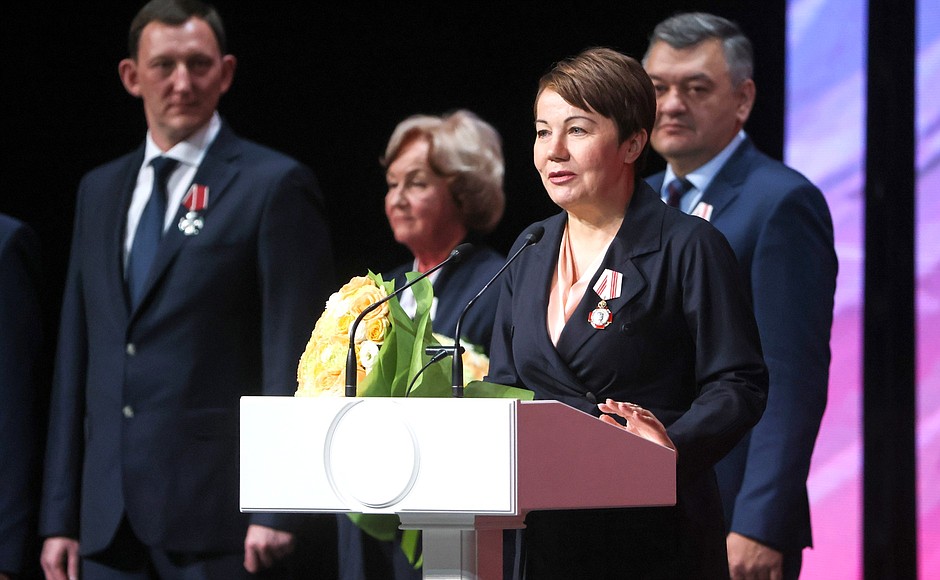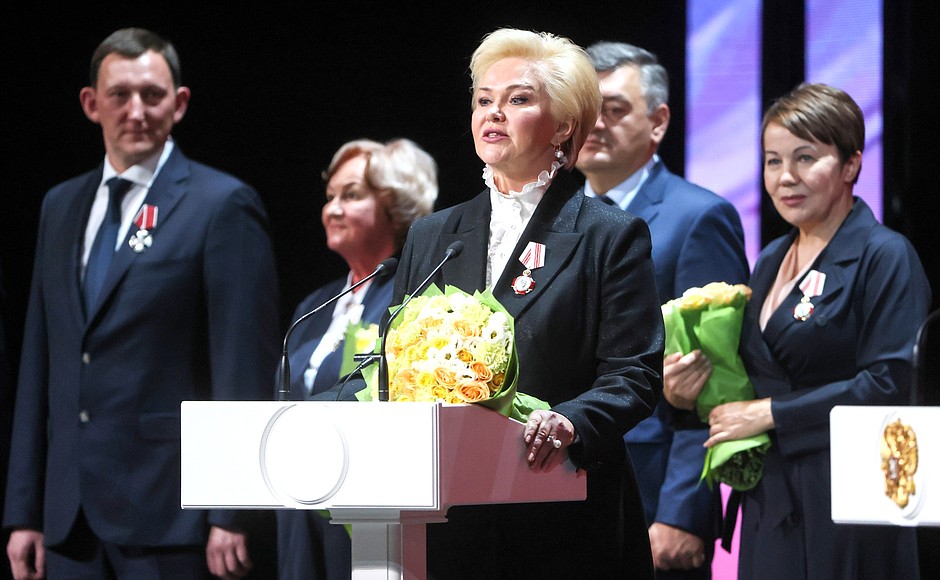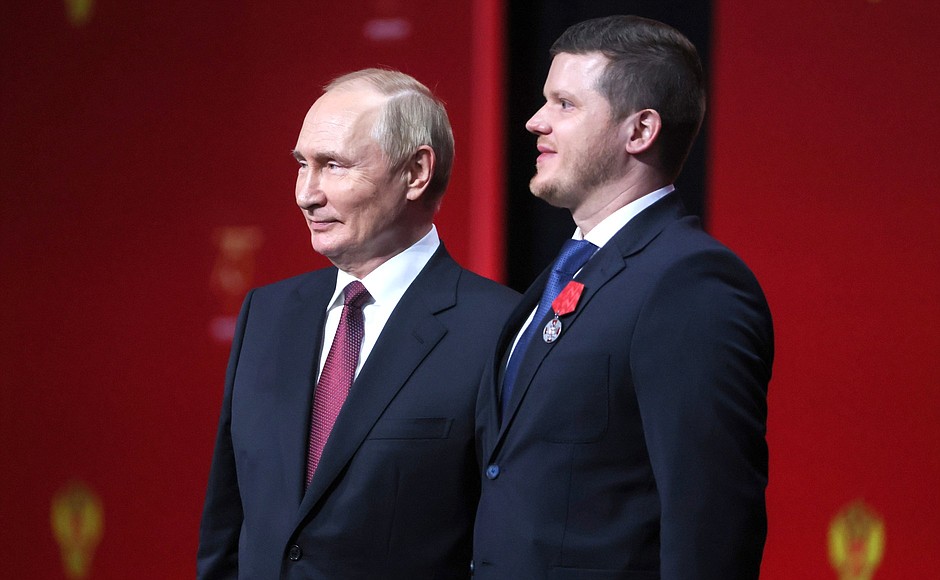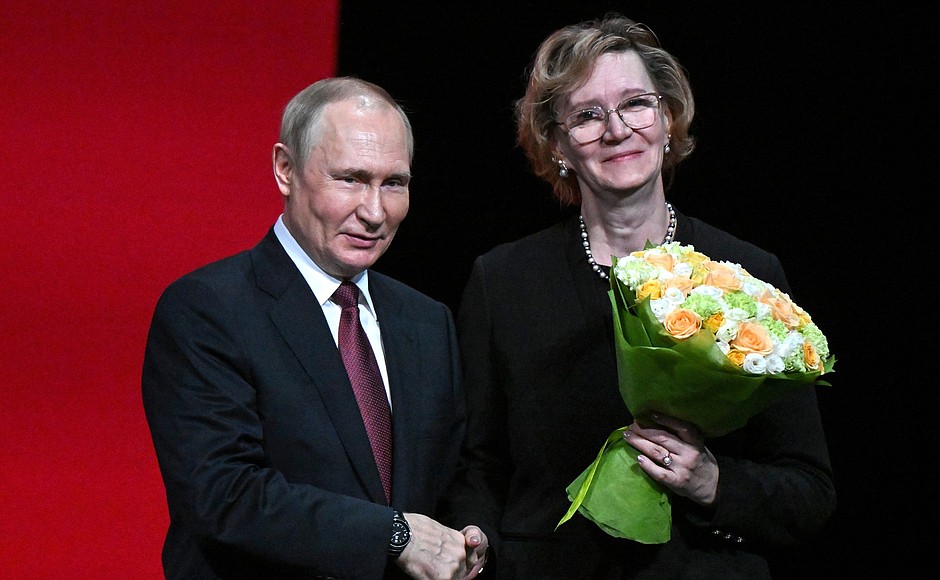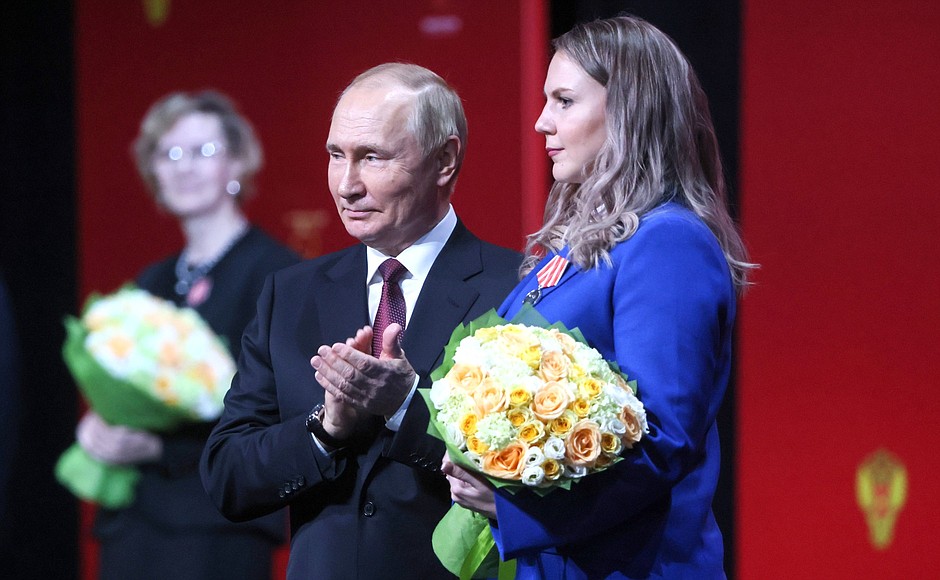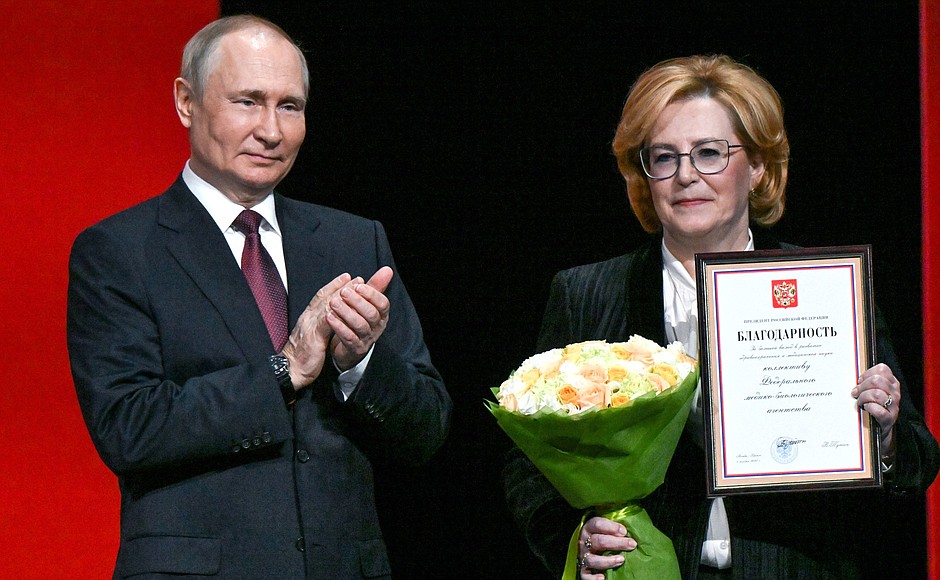President of Russia Vladimir Putin: Friends,
I congratulate you, all 100,000 employees, and former workers of the Federal Medical-Biological Agency on its 75th anniversary.
You have a special mission to improve the well-being and quality of life for people. You serve to protect the health of employees in over 700 organisations and enterprises whose work involves the risks of radiation, chemical, biological and other hazards; you supervise the systems that protect both workers and the public who live near such facilities, and you provide assistance in the development and implementation of advanced technologies in various fields. Scientific discoveries and breakthrough solutions ensure progress – yet, they often pose potential risks to life and health.
Such potential negative impact on humans must be promptly identified, researched and prevented. Seeking solutions to these highly complex tasks has been the basis of your agency’s operations since the beginning, and its history is inextricably linked with the milestones in our nation’s technological development. Today, Ms Skvortsova showed me a new book published by the agency; it has thorough, clear and very interesting information on this subject. Indeed, this is part of the history of our country and its healthcare system.
The need for an agency like this arose almost concurrently with the early phases of the strategic nuclear project in our country. Back then, a new dedicated department was created at the USSR Ministry of Healthcare. Scientifically based standards and regulations for radiation safety were developed practically from scratch under its auspices. Following an uncharted path, we have created a system of medical and scientific centres within an incredibly short time, which have made it possible to closely study the risk factors and, most importantly, to build the necessary protection.
The resources and capabilities of these centres were used in the rocket and space industry as well. They gave rise to space medicine and biology.
This work was undeniably meaningful, extremely important and very much sought after. The best traditions of your highly professional, reliable and well-coordinated team took shape back then. All of your employees have invariably been committed to innovation, creative work and achieving specific results that directly impacted all of medical science in the country.
Today’s employees, including doctors, nurses, epidemiologists, hygienists, engineers and dosimetrists, radiobiologists, physicists, chemists, microbiologists and geneticists maintain high standards of service, patriotism and devotion to the cause.
The agency’s activities have always been based on a solid research foundation. Outstanding scholars and organisers, such as Avetik Burnazyan, Gleb Frank, Andrei Lebedinsky, Vasily Parin, Oleg Gazenko, Leonid Ilyin, Rem Petrov and many, many others created, without exaggeration, world-level research schools.
Ongoing fundamental and clinical research at the agency’s 36 research centres go hand in hand with the development of innovative technology, instruments, and medications.
Friends,
Your colleagues, who created this unique agency, which brought together medicine, research, science and management, worked at the forefront of progress and performed their special tasks, making an immense contribution to the development of our nation. Today, you hold exceptional knowledge and competencies. It is gratifying that they are constantly growing, and the agency has become a driving force of today’s advanced achievements.
Today, your managers apprised me of the work of the Federal Centre for Brain and Neurotechnology. It was exciting to see a research and production centre form here, which is, without exaggeration, an international world class facility where innovative medicines and products are developed.
I was likewise impressed by the first-ever hybrid operating room in our country, which is used, as I had the chance to see for myself, for brain surgery. The patients remain conscious in the process, which is a hard thing to absorb for an unprepared mind, and you can talk with the patient. I saw a patient talk to the surgeon with my own eyes. As I was told, they do this to make sure that the areas of the brain responsible for speech and emotions remain unaffected.
In the future, clinics will create medicines for patients based on their own cells. In fact, this work is already underway, as I was told, and the patients’ biological codes and other factors are being preserved. This is what the transition to the future of medicine looks like, which is what we are witnessing.
I think it would take a while to just review what you do here. I would like to emphasise that you have done and are doing a lot to promote national medical science, as I have mentioned twice, and are successfully expanding your area of expertise.
I would like to highlight the agency’s contribution to combating the pandemic. You prevented outbreaks of the virus at nuclear power plants, cosmodromes and other key industrial facilities, quickly developed high-tech tests to identify the virus’s strains and variants, and you created a vaccine.
The agency is always ready to work in extreme conditions, which is also a tradition that you are following. You are rightly called special medical operations forces. You proved this during the difficult months of the pandemic, when you quickly created teams to help many regions. And now, during the special military operation, the agency's mobile units are again working at the forefront saving civilian and military lives, the lives of our heroes. I am aware of the fact that particularly complex surgeries are performed in the field thanks to the professional skills and courage of the agency's specialists.
Colleagues,
Thank you for your loyalty to the cause, the Motherland, and our people. Thank you for the reliability that you show every day working as a tightly-knit team and achieving impressive results.
I wish you every success and all the best and, of course, I am happy to present state awards to your distinguished staff. Of course, there are many more of you than the people who will now come on stage. I congratulate you all on this anniversary.
<…>
